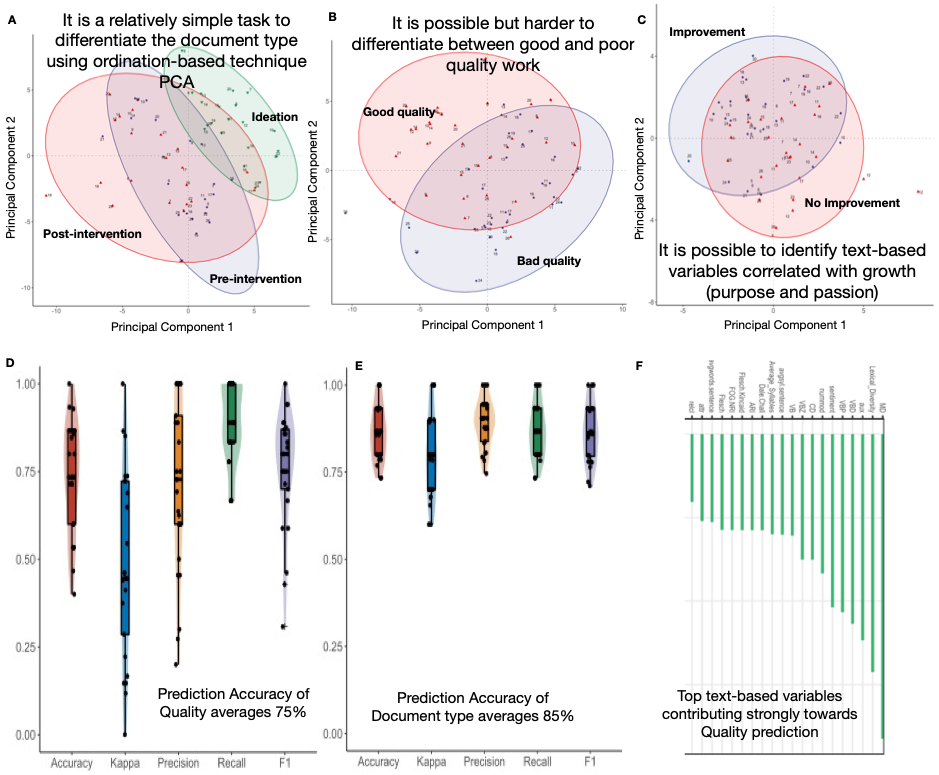biodatascience
This is the web resource for NTU's Bio-Data Science and Education Laboratory
Using machine-based deep learning to uncover the signs of human-based deep learning
As societies shift towards digitization, new industries have emerged leveraging on AI. The Singapore government’s grand roadmaps to transform entire industries is a nod in this direction. As jobs evolve, education needs change. It is clear AI will render low-level jobs obsolete. With smarter technologies, education needs to evolve, with emphasis on creativity/innovation instead of rote learning [1]. This requires human-based deep learning.
To promote deep learning, we need courses that are designed with higher level learning outcomes in mind, with assessments and tasks that stimulate critical thinking and learning to piece together knowledge to create new knowledge or creating novel linkages within the network of knowlege and information. These high-level learning outcomes are known as deep learning.
But how do we know if an individual has indeed manifested the traits associate with deep learning?
While it is possible that with close monitoring and mentoring, professors certainly can tell. This isn’t scalable. In elite universities, only the select few may be privileged to be mentored so personally. To benefit a larger cohort, this approach simply isn’t feasible.
To help solve this problem, we need ways to support instructors’ assessments of deep learning. Today, AI is capable of approximating human assessors through a process called Machine-Based Deep Learning (MBDL). As such, we propose an ideation (proof of concept) project aimed at promoting deep and personalized learning using AI capable of evaluating deep learning. We believe that through this project, students may more effectively deepen their learning based on clearer and more immediate feedback about the depth of their learning.
To that end, our research questions are: (1) What is the extent to which MBDL can approximate human assessors in identifying levels of learning? And (2) What is the impact of MBDL (versus human assessors) on students’ progression toward deep learning? The long-term benefits include improving scalability of creativity/innovation-focused courses, improving mentoring quality via “always on” surveillance, and providing a case study on how AI is used in bolstering high-level cognitive processes.
Preliminary work as proof-of-concept on how AI can be used for classifying text-based journals using 88 text-based variables. Panels A-C shows the result of principal components analysis split by document type, quality and personal growth respectively. Panels D-E shows the prediction performance from the random forest, a powerful AI on quality and document type respectively. For all performance metrics, the closer to 1, the better. Panel F shows some top ranked text-based variables correlated with document quality.

Reference
[1] Goh WWB, Sze CC. AI paradigms for teaching biotechnology. Trends in Biotechnology, 37(1): 1-5, Jan 2019
Team members
- Nicole Kan
- Justin Ng
- Ho Sung Yang
- Sophia Tan
- Chun Chau Sze
- Limsoon Wong
- Wilson Wen Bin Goh
Relevant publications
Coming soon